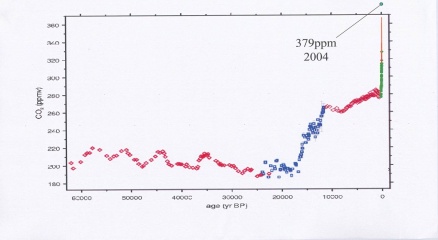|
The term climate change refers to all forms of climate inconsistency, but because the Earth's climate is never static, “climate change” signifies a significant change from one set of climate conditions to another.
In the context of environmental policy, climate change or global warming usually refer to changes on modern climate caused by human made CO2 concentrations in the atmosphere. This is still a theory trying to establish two ‘cause and effects’: firstly that CO2 is the cause of global warming, and secondly, that humans are causing it through the burning of fossil fuels.
|
|
The International Panel on Climate Change, IPCC, is an international body of scientists researching Climate Change. This United Nations study, which was just awarded the 2007 Nobel Peace Prize, was the most comprehensive study of peer reviewed climate research ever undertaken, and one of the most comprehensive studies of any scientific question ever.
The 4th IPCC Climate Change Report published in 2007 states:
- Warming of the climate system is unequivocal, as is now evident from observations of increases in global average air and ocean temperatures, widespread melting of snow and ice and rising global average sea level[1].
- Global GHG emissions due to human activities have grown since pre-industrial times, with an increase of 70% between 1970 and 2004.[2].
- Most of the observed increase in globally averaged temperatures since the mid-20th century is very likely (confidence level >90%) due to the observed increase in human greenhouse gas concentrations.
The IPCC report conclusions are that climate change is an empirical fact. The only question worth asking is how fast we can act to create real reductions in atmospheric CO2.
C02 levels over the past 60,000 years.
Source: Training for Transition, TTT, 2007.
Carbon dioxide is not, however, the only greenhouse gas affecting climate. Experts also warm that other greenhouse gases, such as methane, sulfur hexafluoride, hydrofluorocarbons and perfluorocarbons, are also directly involved in most of the increases in global average temperatures since the mid-20th century".[3].
|
|
Copenhagen 15 (also abbreviated as COP15) is the popular name for a conference that will take place under the general framework of the United Nations Climate Change Conference 2009, 7–18 December at the Bella Center, Copenhagen, Denmark. This conference represents the 15th Conference of the Parties – hence the name – to the United Nations Framework Conventions on Climate Change. Copenhagen 2009 will include the 5th Meeting of the Parties (COP/MOP5) to the Kyoto Protocol.
|

